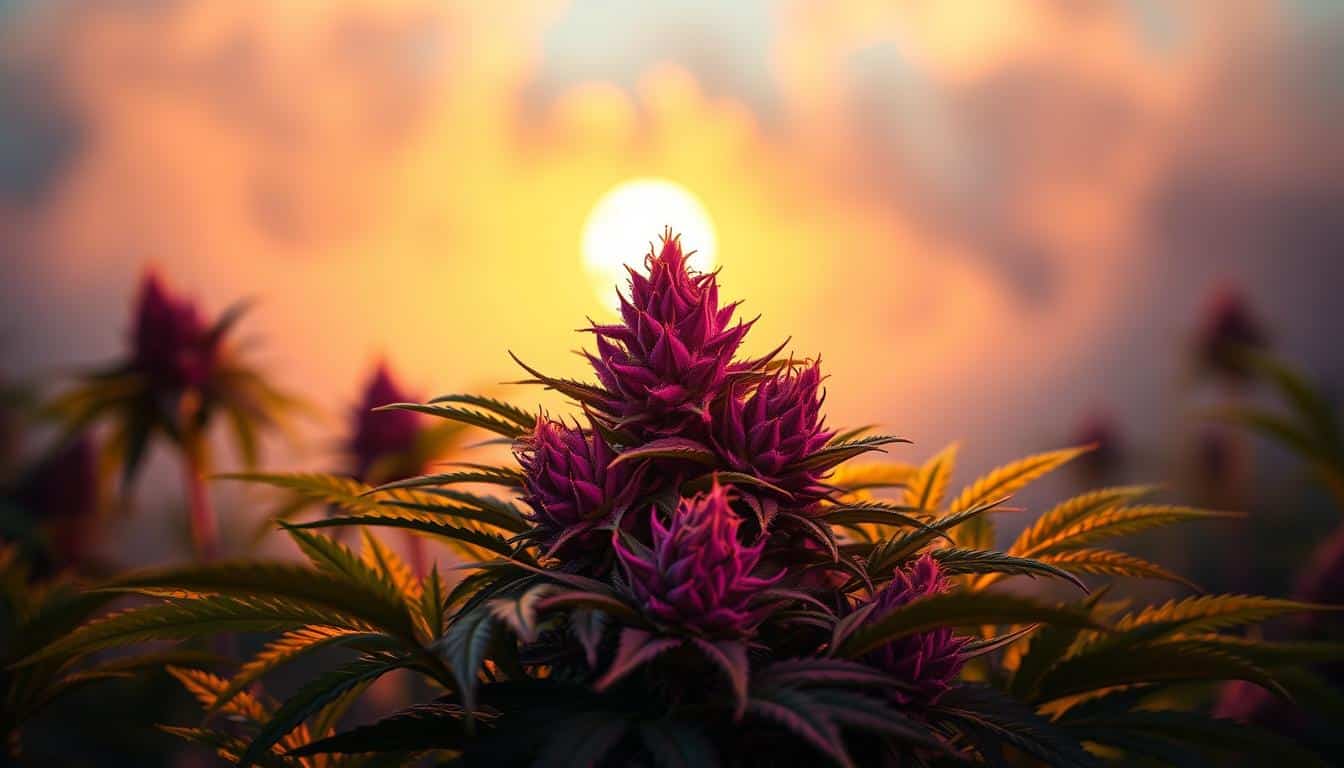How to Weigh Weed Accurately
How to Weigh Weed Accurately? Ever wondered why some cannabis fans are so precise with their measurements? Others might not see the big deal. But knowing how to weigh weed can really make a difference. It’s key whether you’re buying from a shop or managing your own stash.
In this article, we’ll dive into the best ways to measure weed. We’ll also talk about the top scales for the job and share some handy tips. Ready to improve your cannabis experience? Let’s get started!
Key Takeaways
- Understanding the significance of accurate weed measurements.
- Exploring various tools and scales suited for home use.
- Preparing your scale for reliable results.
- Implementing best practices when weighing cannabis.
- Recognizing the difference between weight and volume measurements.
- Learning how to convert weights for different needs.
Understanding the Importance of Weighing Weed
In the cannabis world, precise and accurate weighing is key. It ensures you get your money’s worth and avoids the frustration of getting less than expected. Since cannabis products are sold by weight, knowing the exact amount is crucial.
Why Accurate Weighing Matters
Knowing the exact weight of your cannabis helps you avoid overpaying. It also gives you confidence in your purchase. Poor measurement can lead to common mistakes when weighing weed, such as using the wrong tools or methods. This can leave you with less than you wanted to buy.
Common Mistakes When Weighing
Many people make errors while weighing cannabis. They might miscalculate measurements or weigh in unsuitable environments. Using kitchen scales not made for heavy products can also give wrong readings. Knowing these mistakes helps you improve your technique.
Benefits of Proper Measurement
Using proper measurement techniques has many benefits of proper measurement. It ensures you consume the right amount, preventing waste and enhancing your cannabis experience. For more insights, visit this helpful resource on weed measurements.
Choosing the Right Scale for Weed
Choosing the right scale is key for accurate weed weight. There are many scales for home use, each with its own benefits.
Types of Scales for Home Use
Digital and mechanical scales are top picks for weed weighing. Digital scales are popular for their precision. They show clear measurements and are perfect for personal use.
On the other hand, mechanical scales are more traditional. They can still work well but might not be as accurate as digital scales.
Features to Look For
Look for key features like maximum weight, ease of use, and portability. A high capacity is good for large amounts. A small design is great for carrying around.
A tare function is also important. It lets you weigh items without the container’s weight, making measurements more accurate.
Digital vs. Mechanical Scales
Digital scales are often preferred for their accuracy and ease. They give quick readings and have backlit displays for better visibility in dark places.
However, mechanical scales are cheaper and last longer. They might need more skill to use and can be affected by humidity. Your needs and budget will decide the best choice for you.
Preparing for Weighing Your Weed
Before you weigh your weed, there are a few steps to take. These tips will help you get accurate measurements. This is key for handling your product well.
Cleaning Your Scale
Cleaning your scale regularly is crucial. Leftover residue from previous weigh-ins can mess up your accuracy. Use a soft cloth and a mild cleaner to clean the scale. Stay away from harsh chemicals that could harm it.
Keeping your scale clean ensures you get precise results every time.
Calibrating Your Scale
Calibrating your scale is also essential. Check the manufacturer’s instructions for how to do it. Each scale is different. Calibrate it often to keep your measurements accurate.
This step is vital for the integrity of your weight readings.
Selecting the Right Surface
The surface you use for weighing matters. Choose a flat and stable table for your scale. A bumpy surface can throw off your weight readings.
The Best Practices for Weighing Weed
Measuring marijuana accurately is key. Using the best practices for weighing weed can make a big difference. These methods help you get precise readings and avoid mistakes.
Using a Tare Function
The tare function on your scale is a must. It lets you zero out the weight of containers or other items. This way, you only measure the cannabis, making the process easier and more reliable.
Avoiding Environmental Factors
Things like humidity and air pressure can mess with your measurements. Weigh in a place where temperature and moisture are steady. This keeps your measurements accurate.
Handling Weed Carefully
Be gentle when handling your weed. Small pieces can fall off and affect the weight. Handling it carefully keeps the weight accurate and the weed intact.
Weighing by Volume vs. Weight
Measuring cannabis can be tricky. You need to know the difference between volume and weight. Volume uses containers, but it can be off due to flower density and moisture. Weight, however, gives a steady measure of what’s inside.
Understanding Volume Measurements
Volume is often in milliliters or cups. But with cannabis, it’s not always clear. Two strains might have the same volume but weigh differently. This can cause confusion when buying or using cannabis.
Why Weight is More Accurate
Weight is more reliable for measuring. It doesn’t change with density or moisture. So, you know exactly how much cannabis you’re getting. This makes for a better experience.
Converting Between Measurements
Knowing how to convert weed measurements is key. Understanding ounces to grams helps when buying. For tips on reading labels, check out this guide.
Converting Weights for Different Needs
Learning to convert cannabis weights can really improve your experience. Whether you enjoy it for fun or grow it yourself, knowing how to use a weed weight conversion chart is key. It helps you keep track of your supplies and stay within your budget. A basic conversion to know is that 1 ounce equals 28 grams.
This info is super helpful, especially when you’re rolling joints or making edibles. It ensures you use the right amount.
Ounces to Grams Conversion
Converting ounces to grams makes measuring cannabis easier. It lets you know exactly how much you have. This way, you can plan better and avoid using too much or too little.
For instance, a quarter-ounce is about 7 grams. This accuracy helps with both personal and financial planning.
Practical Examples
Imagine you’re making joints for a party. You’ll need just a few grams per joint. Using a weed weight conversion chart helps you figure out how much weed you need in grams. This ensures you have enough for everyone.
This is also useful when baking edibles. Precise measurements are key to the quality and strength of your final product.
When to Use Which Measurement
Choosing between ounces or grams depends on the amount of weed. For big purchases, ounces are better. But for small amounts, like personal use or recipes, grams are more fitting.
Storing Your Weed After Weighing
After weighing your weed, it’s crucial to store it right to keep it fresh and potent. The right storage prevents damage from light, moisture, and air. Using the best containers and techniques keeps your cannabis in top shape.
Importance of Proper Storage
Storing weed properly is very important. If not done right, it can lose its taste and strength quickly. Keeping it safe from the environment helps keep its quality and flavor.
Recommended Storage Containers
Choose airtight containers like glass jars or vacuum-sealed bags for storing weed. These protect it well from the outside. Glass jars block oxygen and let you see your weed. Also, get UV-proof containers to block harmful light.
Tips for Long-Term Freshness
Simple tips can make your weed last longer. Use humidity control packs to keep the right moisture level. This stops mold and keeps the trichomes. Always check your weed to catch any problems early.
Weighing Smaller Quantities
When you’re dealing with small amounts of cannabis, you need to be very careful. This ensures your measurements are spot on. Using the right tools and methods for micro weighing helps you get the results you want.
Techniques for Micro Weighing
Using specific techniques for micro weighing can really boost your results. Even small mistakes can change how strong your cannabis is. Sticking to a consistent method helps keep your measurements accurate over time.
Tools for Precision
Getting a top-notch digital scale that can measure in fractions of a gram is key. Look for scales made for precision cannabis weighing. Using trays or small bowls for weighing keeps things clean and makes transferring easier.
Why Smaller Quantities Matter
For those into microdosing, being able to measure small amounts is crucial. Getting your measurements right can make your experience better. With the right tools and methods, you can tailor your cannabis use to fit your needs perfectly.
Legal Considerations for Weighing Weed
Understanding local laws about cannabis is key. Many U.S. states have their own rules for cannabis use. Knowing these laws helps you avoid trouble in the complex world of cannabis.
Understanding State Regulations
Each state has its own rules for cannabis. It’s important to know these laws to stay legal. These rules can change, so it’s crucial to stay informed.
Legal Limits on Personal Use
It’s important to know how much cannabis you can have. Exceeding the allowed amount can lead to legal issues. Always check the legal limits in your area.
Importance of Compliance
Following cannabis laws is important for everyone. It helps keep the community safe and supports the cannabis industry. Keep up with new laws to stay compliant.
Troubleshooting Common Weighing Issues
Fixing weighing problems is key to getting accurate measurements. Scale issues can come from many sources like battery life, calibration, or damage. Spotting these problems early can save you a lot of trouble.
Scale Malfunctions and Errors
First, check the battery if your scale is off. Low battery power can mess up your readings. Make sure your scale is calibrated right for the best results. If you see any damage, it’s time to reach out to customer support or get a new one.
Dealing with Environmental Variables
Environmental factors can really affect your scale’s accuracy. Temperature changes can cause reading issues. So, it’s best to weigh in a steady environment. Keep an eye on your surroundings to get consistent results.
Adjustments for Humidity
Humidity can also impact your scale’s accuracy. Too much moisture can lead to wrong readings, especially with sensitive scales. If you see variations, try adjusting your setup to match humidity levels. This will help you get more reliable results.
Resources for Further Learning
Learning more about cannabis measurements can make your experience better. There are many resources to help you understand how to weigh weed accurately. Choosing the right tools is key to measuring and using your cannabis well.
Spending time to learn pays off in many ways. It improves your practical skills and deepens your appreciation for the plant.
Recommended Reading and Guides
Explore books and online guides on cannabis measurement. They cover important topics like the need for accurate weighing and how to store weed. These resources will help you handle weed better, from precise measurements to keeping it fresh.
Online Communities and Forums
Online communities and forums are great for learning from others. They have sections where users share tips and experiences with measuring weed. By joining these groups, you get real-time advice and connect with experienced users.




